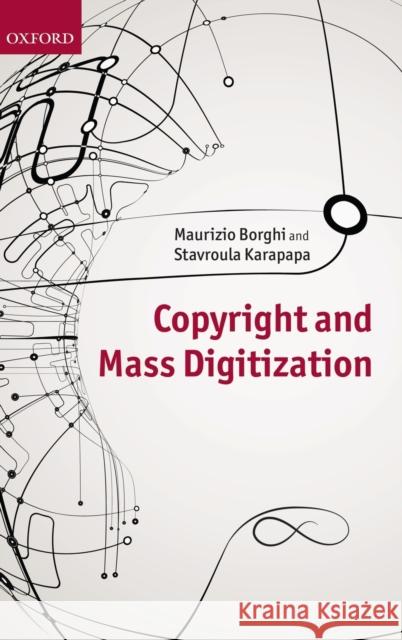Copyright and Mass Digitization » książka
topmenu
Copyright and Mass Digitization
ISBN-13: 9780199664559 / Angielski / Twarda / 2013 / 200 str.
In an age where works are increasingly being used, not only as works in the traditional sense, but also as carriers of data from which information may be automatically extracted for various purposes, Borghi and Karapapa consider whether mass digitisation is consistent with existing copyright principles, and ultimately whether copyright protection needs to be redefined, and if so how?
The work considers the activities involved in the process of mass digitization identifying impediments to the increasing number of such projects such as the inapplicability of copyright exceptions, difficulties in rights clearance, and the issue of 'orphan' and out-of-print works. It goes on to examine the concept of 'use' of works in light of mass digital technologies and how it impinges on copyright law and principles; for example considering whether scanning and using optical character recognition in mass digital projects qualify as transformative use, or whether text mining on digitial repositories should be a permitted activity. These issues are considered in the context of both European and US law. Consideration is also given to mass digitization in the wider context of 'law and technology', comparing mass digitization issues with those of genetic databases, online privacy and data protection. Illustrating how mass digitization unveils a number of unsettled theoretical issues within copyright, the book proposes a new regulatory framework for the use of works in the context of emerging technologies, providing a new rights-based approach to dealing with copyright.










